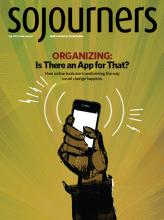In July, as Americans we celebrate our freedom. It's a word and a concept that many of us toss about without much thought, but on the occasion of the independence hard-won by the United States some 235 years ago, perhaps it is appropriate to give it closer inspection.
Freedom means the "absence of necessity, coercion, or constraint in choice or action," according to Merriam-Webster. It also connotes the ability to speak frankly and honestly, a certain boldness, and a political right. I would argue that it is moreover a spiritual right, inalienable and God-given.
Not unlike the Jewish celebration of Passover, which commemorates God's deliverance of the Israelites from slavery in Egypt -- the Hebrew word for which means "narrow place" -- on Independence Day we remember our country's deliverance from the clutches of tyranny’s oppressive fist. Still, there are myriad things, personally and institutionally, that threaten to keep us bound in narrow places of fear and human-made judgment from which God is ever ready to rescue us.
Earlier this year, a group of alumni from my alma mater, Wheaton College in Illinois, took a bold stand for freedom and justice when they launched One Wheaton, an organization dedicated to showing solidarity and love for gay, lesbian, bisexual, and transgender students at the institution whose motto boasts that it is "For Christ and His Kingdom."
While in the evangelical Christian milieu Wheaton is hardly the most conservative and clamped down of places, for gay students and those wrestling with their sexuality, it can feel more like a gulag than the promised land. By and large, evangelical Christianity as a culture is not the most welcoming place for gays and lesbians. Wheaton, historically at least, is no different.
Read the Full Article
